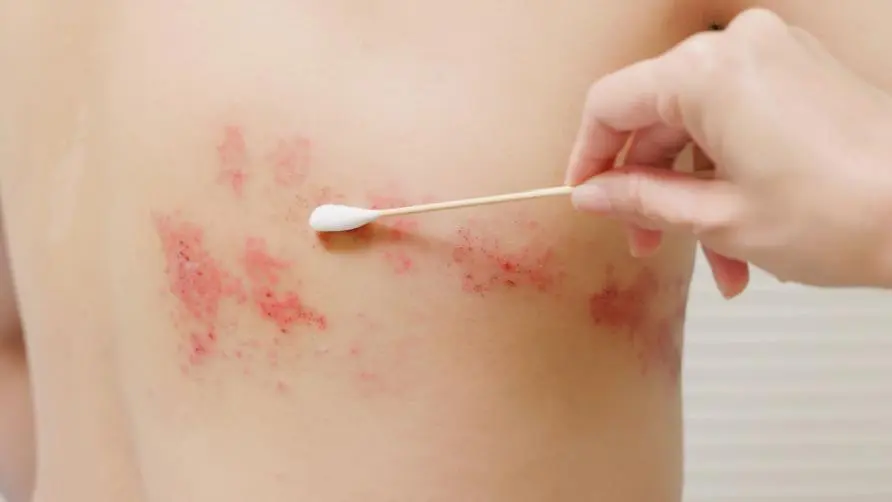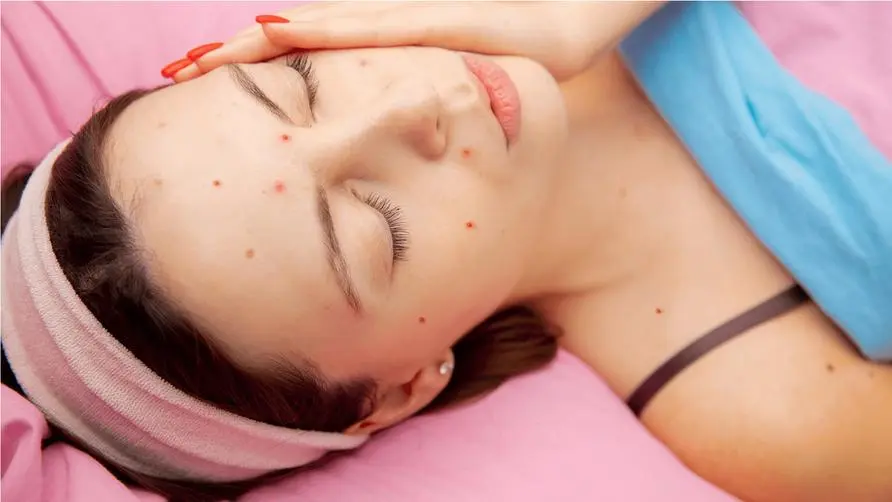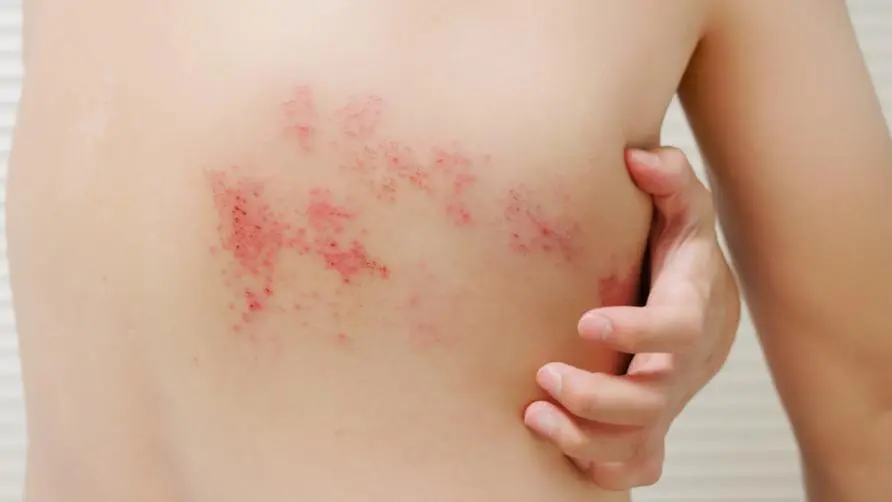The big temperature difference in spring opens the skylight for immunity! Doctor: Beware of "shingles" outbreak that will change beyond recognition
Big temperature difference in spring. Beware of immunity. Skylight Doctor: Pay attention to herpes zoster outbreak
March and April are hot and cold, and the sharp temperature difference not only makes it easy to catch a cold, but also requires careful immunity, as the risk of “shingles” increases. Zhang Yihao, director of Zhang Yihao ENT Specialty Clinic, said in an interview that when the seasons change or the temperature difference between day and night is large, failure to keep warm can easily affect the resistance. In addition to the increase in the invasion of external germs, herpes zoster latent in the body may also be waiting for an opportunity to break out.
Dr. Zhang Yihao said that herpes zoster may occur at any time of the year. However, observation of public medical treatment shows that immunity declines during seasonal changes. If the new coronavirus is diagnosed, the risk of herpes zoster will increase. According to doctors’ medical experience, during the COVID-19 pandemic in the past three years, the proportion of herpes zoster consultations has been higher than in previous years. Considering that herpes zoster often occurs when immunity is weakened, high-risk groups should proactively prevent it as early as possible.
Is chest pain and ear pain a shingles attack? Complications may cause “beyond recognition”
Dr. Zhang Yihao pointed out that herpes zoster, also known as “skin snake”, is a vesicular rash caused by the varicella zoster virus. When the human body is first infected, it is called “chickenpox”. After recovery, the virus will still lie dormant in the ganglia. With age, It relapses when the immune system weakens due to other diseases. Statistics show that the chance of Taiwanese people getting shingles in their lifetime is 32.2%, and up to 1/2 of people over 85 years old will develop shingles. Don’t assume that just being healthy and asymptomatic means you are protected from the threat of shingles for life.
The initial symptoms of herpes zoster are not obvious, and many patients seek medical treatment only after clusters of small red rashes and blisters appear on their skin. Dr. Zhang Yihao said that at the beginning of the epidemic, he treated a patient in his 50s who had a complete red rash and broken skin on his right chest when he went to the hospital. Although antiviral drugs and analgesics were given urgently, the patient was not followed up until a year later when he went abroad. The pain still persisted during the follow-up visit, and even strong painkillers could not relieve it. Further neuroleptics were prescribed to stabilize the condition, and he was encouraged to maintain a good daily routine and exercise more. After the condition has stabilized and symptoms have subsided for a period of time, you may also consider administering the shingles vaccine to prevent future recurrences.
Dr. Zhang Yihao explained that in addition to causing acute pain and chronic post-rash neuralgia, herpes zoster is more likely to cause serious complications if the virus invades the facial area. A 30-year-old Chinese medicine employee went to the emergency department because of severe ear pain. He was shocked to find that the inner auditory canal and eardrum of the ear were covered with blisters, which is medically known as “Ramsay hunt syndrome”. Because the virus invades the facial nerve and multiple cranial nerves, the patient is unable to raise his eyebrows or pouting, which eventually develops into irreversible facial nerve paralysis, and nearly 20% of the hearing is permanently damaged. In severe cases, the patient is completely unrecognizable.
Shingles is like an “unexploded bomb” in the body! Risk groups should pay attention to
Dr. Zhang Yihao pointed out that the treatment of herpes zoster mainly focuses on reducing the amount of antiviral drugs. Oral or topical antiviral drugs can be given. Anti-inflammatory analgesics and ointments for red rashes and blisters can also be prescribed. When treatment fails or nerve pain persists, nerve stabilizers may be considered. Since the chickenpox virus lurks in the body like an “unexploded bomb”, an outbreak of shingles may seriously affect health and life. At-risk groups may consider vaccination to reduce the risk of outbreaks.
Age is one of the major risk factors for shingles, and studies have shown that those over 50 years of age have a significantly increased risk of developing shingles. Dr. Zhang Yihao said that as long as you are over 50 years old, it is recommended to maintain a good lifestyle, a balanced diet, and regular exercise for prevention. You can also evaluate with your doctor whether there is a need for vaccination against herpes zoster. If you are under 50 years old and have chronic diseases such as diabetes, , asthma, COPD, and a history of cancer, also have a higher risk of shingles. In addition, if you have an abnormal lifestyle, often stay up late, or have had herpes zoster in recent years, even if you are under 50 years old, it is recommended to discuss appropriate herpes zoster prevention methods with your doctor.
How to maintain immunity when the seasons change? Doctor: The sooner you can prevent shingles, the better
Dr. Zhang Yihao reminds that the temperature changes drastically during the change of seasons. People over 50 years old or those with chronic diseases should keep warm, wear appropriate clothes, and maintain appropriate exercise. Nutrients that help immunity, such as vitamin B complex, vitamin C, and zinc ions, can be appropriately supplemented. You can also ask your doctor for information on preventing shingles, including getting vaccinated to increase your body’s resistance to the shingles virus.
Dr. Zhang Yihao emphasized that the human body cannot maintain a healthy state without getting sick for life, and it is unknown when the next pandemic like the new coronavirus will arrive. Therefore, the sooner you start preparing to prevent shingles, the better. The shingles vaccine can not only reduce the chance of an attack, but more importantly, prevent post-rash pain. People who have already developed herpes zoster are still at risk of recurrence in the long term. Vaccination can also be considered long enough after the acute phase of herpes zoster has ended. We call on high-risk groups to pay attention to the risk of herpes zoster and take active measures to prevent it.
John A;Infect Dis Clin North Am;2017;31;811–826
Epidemiology and economic burden of herpes zoster and post-herpetic neuralgia in Italy: a retrospective, population-based study: https://pubmed.ncbi .nlm.nih.gov/20682044/
NP-TW-HZU-ADVR-230004 | Date of preparation: Mar 2023 For more information about the disease, please consult a medical professional
Further reading:





